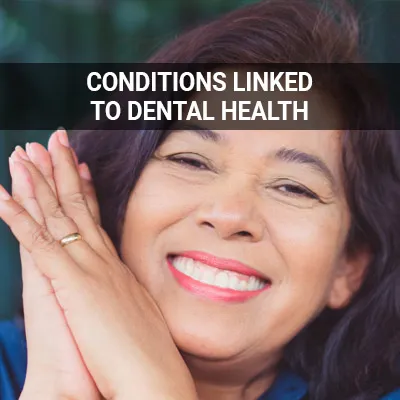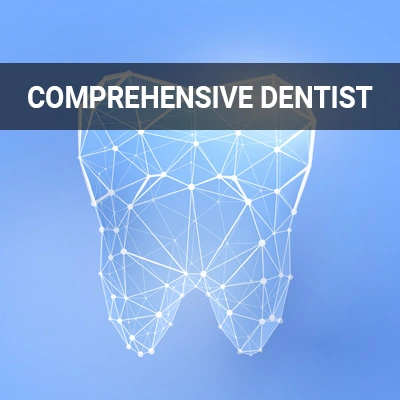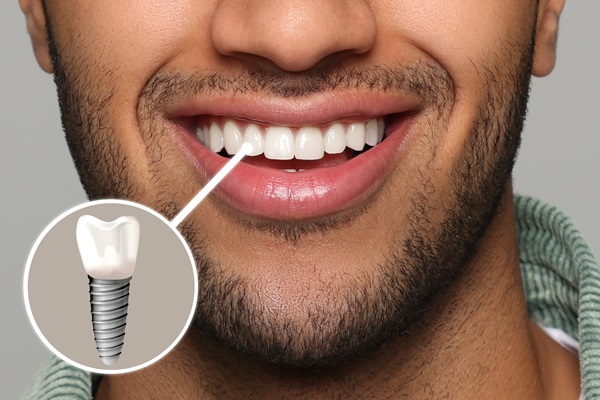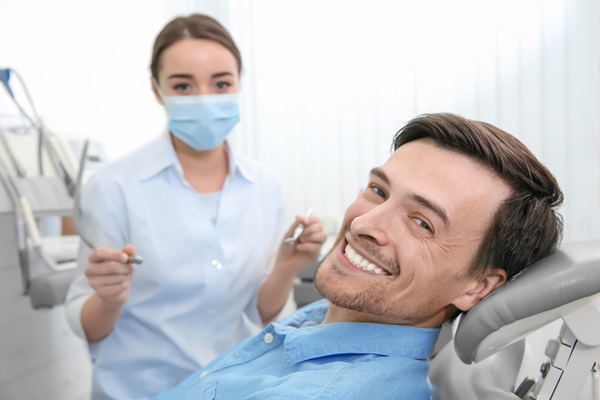Preventative Treatment of Cancers Through Improving Oral Health Bayside, NY
Gum disease is a frequently overlooked precursor to cancers. While all body systems are interconnected, traditional dentists often fail to acknowledge the importance of the oral-systemic link. In reality, maintaining oral health can be one of the easiest ways to prevent various cancers.
Total health dentistry is available at Vital Dental of Bayside in Bayside and the surrounding area. We are proud to offer preventative care for oral cancer, gum disease, and more. Call us today at (718) 225-4888 to schedule an appointment or to learn more about our services.
Total Health Dentistry and Gum Disease
According to the Mayo Clinic, oral health is "a window to your overall health." Oral hygiene issues are often indicative of deeper, overall health issues — whether they are preexistent or soon to come. As the mouth is an entryway to the digestive and respiratory tracts, it also acts as a natural breeding ground for bacteria. Though most of these bacteria are harmless, poor oral hygiene can allow them to multiply at dangerously high levels. This may cause several kinds of oral infections, such as gum disease.
Gum disease is also known as periodontal disease. It typically begins as gingivitis, or gum inflammation, before progressing to periodontitis, a severe form of gum disease. Multiple studies have shown a correlative relationship between periodontitis and various forms of cancer, including but not limited to breast cancer, digestive tract cancer, esophagus/oropharyngeal cancer, and prostate cancer. Patients should speak to a complete health dentist about their personal risk factors to catch any warning signs of disease, oral or otherwise.
“Oral hygiene issues are often indicative of deeper, overall health issues — whether they are preexistent or soon to come.”
Total Health Dentistry and Oral Cancer Screenings
It is imperative for everyone to see a complete health dentist for a wellness visit at least once a year. However, some patients may need to see the dentist more frequently than others. There are several factors that can raise a person’s risk of oral cancer and other systemic conditions. Common risk factors involve excessive alcohol use, tobacco use, a history of oral cancer, excessive sun exposure, and certain forms of human papillomavirus (HPV).
A complete health dentist can determine how frequently a patient should be screened for oral cancer. However, virtually anybody can benefit from undergoing an oral cancer screening. It can be difficult to recognize the signs of oral cancer without professional help until it has already progressed. Early detection can be instrumental in successful treatment. An initial examination will typically involve an assessment of the lips, gums, tongue, insides of the cheeks, roof of the mouth, and back of the throat. From then on, the dentist can carry out further examinations as necessary.
“A complete health dentist can determine how frequently a patient should be screened for oral cancer.”
Total Health Dentistry and Pre-Existing Cancers
Many people are unaware that cancer treatment can take its toll on the mouth. Cancer treatment may cause issues with eating, talking, and swallowing for patients — thus lessening the overall quality of life and interfering further with cancer treatment. Common symptoms of head and neck radiation include dry mouth, infections, jaw bone changes, jaw stiffness, loss of taste or changes in the way food tastes, sore mouth and gums, and severe tooth decay. Chemotherapy may lead to changes in taste, changes to the tongue (burning, peeling, or swelling), dry mouth, infection, mouth ulcers, and painful mouth and gums.
It is vital for patients to let their dentists know about any concurrent treatments they are undergoing — or any cancers that they have previously suffered. Patients should also ensure their dentists and oncologists are in contact with each other to devise the best, personalized treatment plan for them. If possible, patients should see a dentist about their month before beginning cancer treatment. This can help ensure the health of the mouth. If they have already begun radiation treatment, patients should ask their dentists about using fluoride gel and jaw muscle exercises to stay in optimal health.
“Cancer treatment may cause issues with eating, talking, and swallowing for patients — thus lessening the overall quality of life and interfering further with cancer treatment.”
Check out what others are saying about our dental services on Yelp: Preventative Treatment of Cancers Through Improving Oral Health in Bayside, NY
Total Health Dentistry and Spotting Cancer
With many types of cancer, patients may experience little to no symptoms until the disease has already progressed. A complete health dentist can help identify the warning signs before it is too late. All too frequently, patients may brush these off as simple pains or inconveniences. In reality, they may be something far more serious. Some of the early signs of jaw cancer, for example, include difficulty moving the jaw, increased pain, loose teeth, tooth pain, and trouble chewing. Even though non-cancerous conditions may cause such symptoms, it is always best to confirm with a doctor.
Jaw cancer is just one of multiple head and neck cancers, many of which may manifest themselves with oral symptoms. Oral and oropharyngeal cancers are also included in this group. Symptoms of such cancers involve changes in speech, chronic bad breath, difficulty moving the jaws or tongue, difficulty swallowing, ear or jaw pain, fatigue, hoarseness or change in voice, ill-fitting dentures, loosening of teeth or toothache, loss of appetite, numbness of the mouth or tongue, pain or bleeding in the mouth, persistent sore throat, red or white patches, and more. However, other types of cancer may be indicated by a patient’s oral health.
“With many types of cancer, patients may experience little to no symptoms until the disease has already progressed.”
Questions Answered on This Page
Q. What is the link between gum disease and cancer?
Q. Why should I see a complete health dentist for oral cancer screenings?
Q. How can cancer treatment affect my oral health?
Q. How can my oral health indicate warning signs of cancer?
People Also Ask
Frequently Asked Questions
Q. What makes a complete health dentist different from a traditional dentist?
A. Complete health dentists vary from traditional dentists in that they look at the patient first — not just the condition. In traditional dentistry, patients are typically treated as passive recipients of care. They do not receive any education on their condition or how to improve it. Complete health dentists emphasize the collaborative nature of a successful doctor-patient relationship. They work together to understand the healthy mouth baseline, set realistic goals, and consider the individual risk factors unique to the patient.
Q. Is there a proven relationship between periodontal disease and cancer?
A. Right now, there is insufficient evidence to determine whether or not the relationship between periodontal disease and cancer is causal. However, there is certainly a correlative relationship between the two. Periodontal disease is also associated with various systemic conditions, strongly suggesting that we should not overlook the interconnectedness of the body.
Q. What are some of the risk factors for periodontal disease?
A. There are various risk factors associated with periodontal disease, many of which are lifestyle-related. These involve excessive alcohol consumption, tobacco use, and poor nutrition. Age, genetics, medications, stress, and teeth grinding may also play a factor. We can help identify your risk factors and how to work around them.
Q. How can I lower my risk of periodontal disease?
A. Practicing good oral hygiene is the easiest way to protect yourself from periodontal disease. Brush your teeth at least twice daily with a fluoridated toothpaste and floss at night. Eat a balanced diet and drink fluoridated water. Practice proper brushing technique, making sure not to over- or under-brush.
Q. What part of the mouth can get oral cancer?
A. Most cancers of the mouth or oral cavity occur in the floor of the mouth and tongue. However, they may also occur in the cheek lining, gums, lips, and upper or lower jaw. There is also an area right behind the mouth known as the oropharynx. Oropharyngeal cancer refers to any type of cancer that occurs behind the tongue, tonsils, and throat tissue. This makes up about one-third of all oral cancer cases.
Quality Dental Services Can Transform Your Smile
By visiting us as soon as possible, our team can help get you the professional treatment you need. Instead of waiting around and allowing the symptoms to get worse, we can provide you with treatment options.
Dental Terminology
Call Us Today
As the saying goes, the best offense is a good defense. The same is true when it comes to cancer prevention. We at Vital Dental of Bayside may be able to help. Call us today at 718-225-4888 to schedule an appointment or to learn more about our services.
Helpful Related Links
- American Dental Association (ADA). Glossary of Dental Clinical Terms. 2022
About our business and website security
- Vital Dental of Bayside was established in 2001.
- We accept the following payment methods: American Express, Cash, Check, Discover, MasterCard, and Visa
- We serve patients from the following counties: Queens County
- We serve patients from the following cities: Bayside, Flushing, College Point, Forest Hills, and Elmhurst
- National Provider Identifier Database (1417080581). View NPI Registry Information
- Norton Safe Web. View Details
- Trend Micro Site Safety Center. View Details











